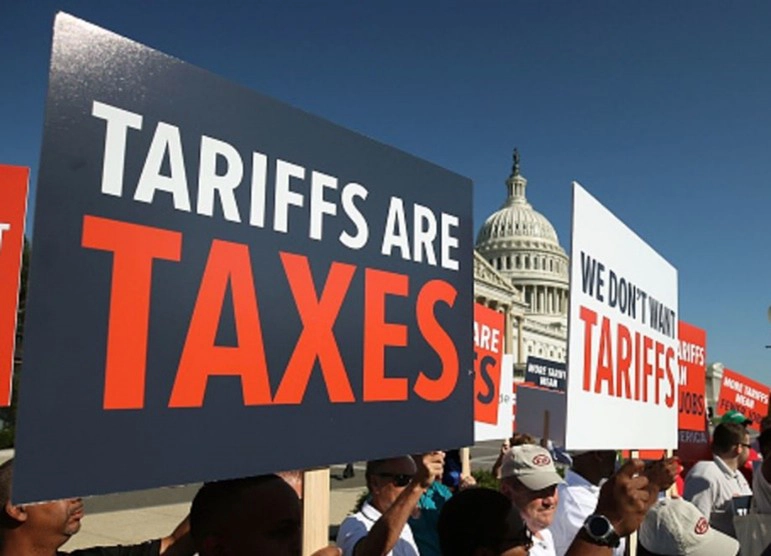
And here it is: a new administration. What’s changing for home seekers and deed holders?
Yes, there will still be FHA mortgages. There will still be conventional loans with government backing. But we can expect…
- Continued tension over upzoning to increase housing in the suburbs.
- Potentially higher mortgage costs for borrowers — especially those who put less than 20% down.
- A lot of discussion of privatizing Fannie Mae and Freddie Mac.
All of these possibilities impact the value and availability of deeds for ordinary people. So, let’s do some Q&A to look at what might change in the months ahead, as Trump settles back into the White House.
Q. Can the Upzoning Trend Continue?
A. Donald Trump has vowed to guard suburban zoning against density. And yet people do need apartments, condos, and townhomes in the suburbs.
Trump has suggested building homes on federal land, so as to promise more housing without having people say “Not in my backyard.”
It’s important to remember that the federal impact on local zoning is limited and indirect. Building and zoning ordinances are local regs, created with authority delegated by the states.
Density offers supply. Supply is crucial. Buyers are paying about a third more on the typical home than they were pre-pandemic. The need for accessory housing units, townhomes, condos and apartments persists.
Q. Will Tariffs Raise the Cost of Acquiring a Deed?

A. If they go through, yes. They’ll have a pricey impact. For one, trade tariffs are additional costs on lumber, cement, and copper, and other materials we get from other countries.
So, tariffs promote inflation. New homes and renovated homes will have higher price tags. When building costs go up, buyers pay more.
And, because one in three construction workers are migrants, an administration anxious to exclude noncitizens will create new expenses. Housing costs will go up.
Q. Will We See the Privatization of Fannie and Freddie?
A. These lending powerhouses enable half of U.S. home purchases. Privatizing them could push up mortgage prices, because they wouldn’t have the government backing that lets them keep loan rates and terms as reasonable as possible.
Major shareholders stand to profit handsomely if they go back to being private corporations. Yes, Fannie Mae and Freddie Mac used to be private companies. But they got bailouts in 2008 and agreed to government oversight to get beyond the foreclosure crisis. They’ve since repaid their bailouts. So, should they be released from government oversight?
The Federal Housing Finance Agency (FHFA) oversees Fannie Mae and Freddie Mac. Donald Trump nominated Bill Pulte of Pulte Capital Partners to lead the FHFA. Pulte can be expected to carry out the president’s plans. But Congress gets a say too. So, we shall see.
Q. Will HUD Continue Its Commitment to Fair Housing?
A. Let’s look for a moment at the Trump nominee to lead the Department of Housing and Urban Development. It’s Scott Turner of Texas, who’s also endorsed by former HUD secretary Ben Carson.
Turner “sidestepped” questions on fair housing policies and potential HUD budget cuts, according to AP’s investigative reporter Sally Ho. “There were sports analogies galore but few policy specifics,” the reporter wrote, during Turner’s Senate confirmation hearing. (Scott Turner is a former NFL player.)
Turner did note HUD’s recent studies showing a serious rise in U.S. homelessness. Turner said HUD’s failure to meet its mission “has to come to an end.” (Ben Carson, who led the department in the first Trump administration, has said it needs a “reset.”)
Q. How About Help for First-Time Homebuyers?
A. Senator Elizabeth Warren wrote a letter to Scott Turner, expressing concern about the incoming administration potentially cutting back on assisting first-time buyers, while raising the cost borrowers shoulder for mortgage insurance. Any such changes would be disproportionately hard on members of minority groups. Ben Carson has suggested hiking the FHA mortgage insurance premium for all 30-year mortgage loans.
Many deed holders got on the homeownership ladder with a government-insured loan from the Federal Housing Administration (FHA), a part of HUD. HUD can also make it harder for investment companies to buy up starter homes and use them to collect rental profits. And it can decide to continue supporting the resilience of working communities as they deal with climate change.
Q. What Else Is on Our Radar at This Time?
A. At Deeds.com, we’ve explored the matter of the bias that can impact the appraisal of a home’s market value. We’ve seen appraisal bias become a priority for the federal government, too. But that concern could fall by the wayside.
We have also paid attention to critical concerns for deed holders in a time of sea level rise and flood risks. Flood risk rules at the federal level could be dropped. This could shift risks and costs to ordinary deed holders.
All Things Considered (So Far)…
Federal policies can help people get their deeds — and keep them. But these policies could be altered significantly. First-time buyers need support, not higher hurdles to clear. Consider the forecast from the National Association of REALTORS®: that only four million home purchases will happen this year. Home buying hasn’t been this slow in 30 years.
How much change the new administration can push through remains to be seen. Making deed decisions now rather than later is one way to avoid surprises.
Please note: This and other articles on Deeds.com are offered as general commentary and issue-spotting. Nothing on this or any other website substitutes for individualized guidance from a legal or financial professional.
Supporting References
Bryan Mena for the Cable News Network (part of Warner Bros. Discovery) via CNN.com: Economy – Mortgage Rates Climb Above 7% to Highest Level Since May 3 (Jan. 16, 2025).
A.J. Rico for the Associated Press (AP), via PBS.org: Trump Allies Hope a Win Means Changes to the Mortgage System. Opponents Warn It Will Cost Consumers (Oct. 25, 2024; with information from Urban Institute and Moody’s Analytics spokespeople).
Chris Clow for HousingWire (part of HW Media, LLC) via HousingWire.com: Will Trump, Project 2025 Kill HUD? (Nov. 8, 2024).
Ronda Kaysen for The New York Times: Can the U.S. Climb Out of Its “Unprecedented” Housing Crisis? (published Dec. 11, 2024 and updated Dec. 13, 2024).
Kim Velsey for Curbed (in New York Magazine, via Curbed.com, part of Vox Media, LLC): “New York City Will Have to Defend a Lot of Programs We Rely On” (Nov. 11, 2024; discussion with Matthew Murphy, of New York University’s Furman Center).
Maiclaire Bolton Smith, host of Core Conversations: A CoreLogic® Podcast via CoreLogic.com: What Will a Second Trump Presidency Mean for U.S. Housing? (conversation with Chay Halbert on Nov. 13, 2024).
Builder Magazine (part of Zonda Media): Mortgage and Finance – Trump Nominates Bill Pulte as Director of the Federal Housing Finance Agency (Jan. 16, 2025).
Sally Ho for The Associated Press, via AP.org: Politics – Turner Tackles HUD Program Reforms at Confirmation Hearing for Housing Secretary (Jan. 16, 2025).
And as linked.
More on topics: How mortgage loan policy developed, Pressure on states for affordable homes
Photo credits: Trump White House via Flickr.com, licensed under Public Domain Mark 1.0 Universal; and AFP, licensed under CC-BY-SA 4.0 International.
